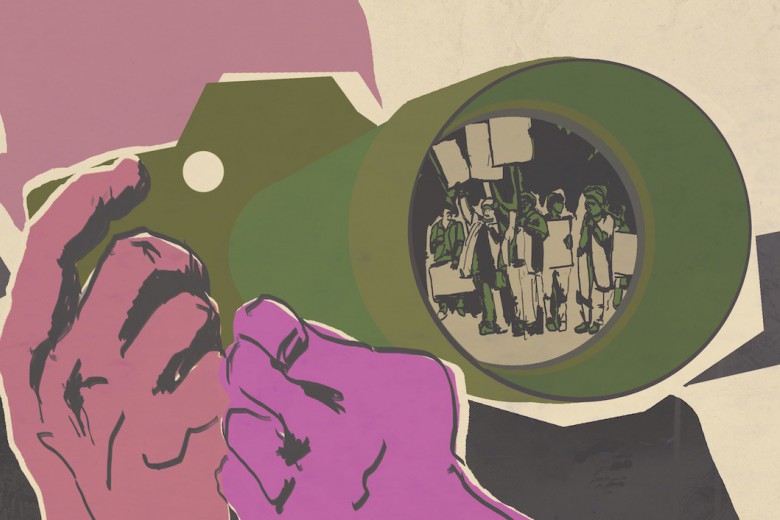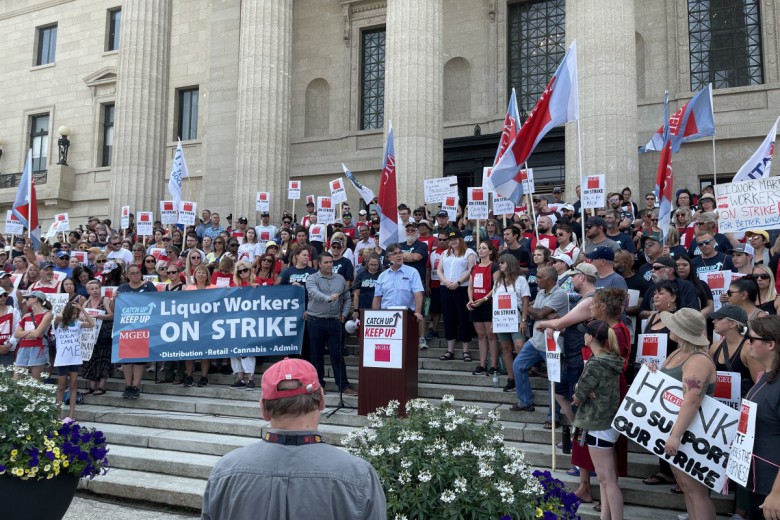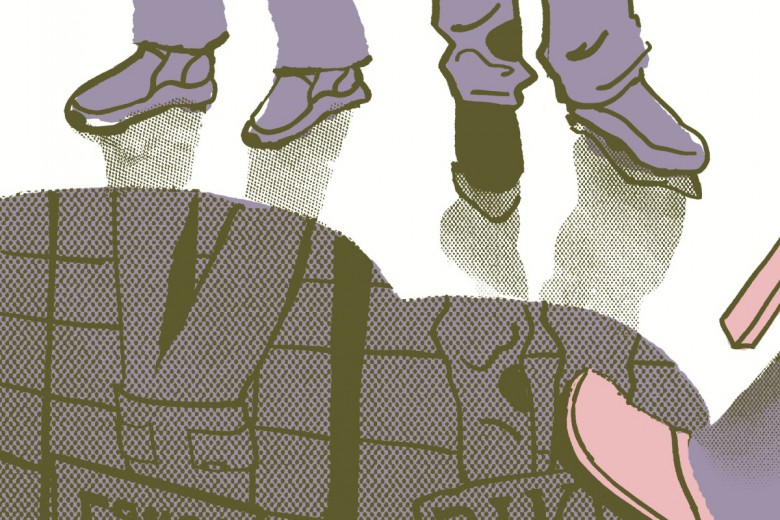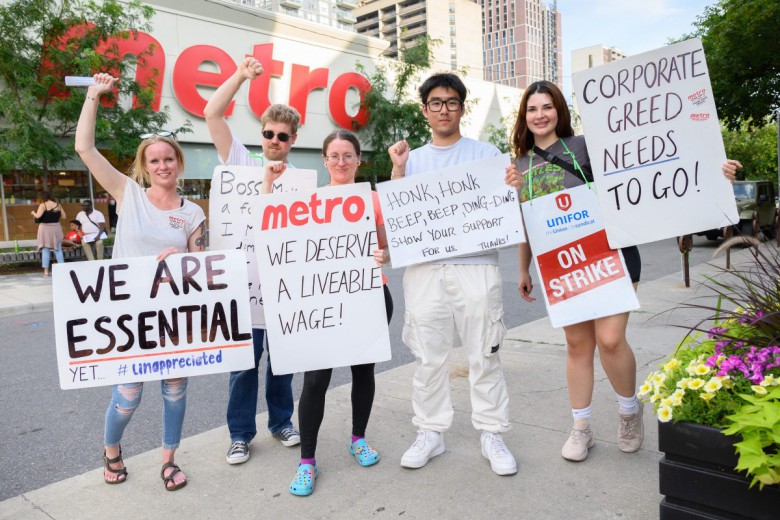On a sunny March day, one of my unions, CUPE 4600, called for a strike. For 11 days, teaching assistants, research assistants, and contract instructors at Carleton University refused to perform any labour, disrupting hundreds of the university’s courses.
The university swiftly retaliated. Carleton’s administration pushed professors to cross picket lines and do the work of teaching assistants, allegedly pressured international students back to work by claiming striking would affect their visas, and hired the private security firm Xpera to surveil and collect data on the strikers.
When our bargaining team called us into a meeting to tell us that we weren’t going to make the gains we had hoped for, members were understandably upset. Our bargaining team tried to spin it as a win: we won improved paid sick leave, pregnancy leave, and parental leave; mental health coverage; and pay increases, among other benefits. But I think it’s also important for members to grieve the workplace and learning conditions they hoped for as they’re forced back on the job in conditions they never agreed to.
The gains we’re really after are never on the bargaining table – the demands we bring to our employers are already concessions because we’re bargaining with institutions that only care about lining the pockets of their administrators.
Similar feelings about loss and institutional sabotage are mirrored in our cover story, “Who is the NDP for?” Former candidates and activists Anjali Appadurai, Kaitlyn Harvey, and Navjot Kaur had hoped to bring their organizing expertise and visions for climate and racial justice to the NDP. Instead, the three racialized women were met with last-minute rule changes, hostile colleagues, and a warning: fall in line with the party or you’ll be shut out. In Haseena Manek’s revealing article, the activists detail how the NDP undermined their campaigns, smeared their reputations, and compromised the party’s democratic system to keep them out of leadership positions.
Leftists were devastated by Appadurai, Harvey, and Kaur’s losses. Whenever a young radical runs, especially a racialized woman, they offer a moment of hope into an otherwise uninspiring electoral system. I got the same hopeful feeling on the picket line – a better collective agreement could provide needed relief to CUPE 4600 members struggling under the weight of tuition, rent, and record inflation.
Also in this issue, griffin epstein and kate klein interview union members organizing for COVID-19 safety. One of those members, David Camfield, shares with them that many workers didn’t understand that COVID safety measures were something that a union could fight for. As Camfield told them: “Just because the collective agreement doesn’t say anything meaningful about [an issue] doesn’t mean we shouldn’t use the union as an organization through which we can build some power to have an impact.”
The gains we’re really after are never on the bargaining table – the demands we bring to our employers are already concessions because we’re bargaining with institutions that only care about lining the pockets of their administrators. While winning better working and living conditions are important moments in leftists’ larger struggle for power, the struggle is not with administrations or institutions, but with the wider community.
Whenever a young radical runs, especially a racialized woman, they offer a moment of hope into an otherwise uninspiring electoral system.
For 11 days at Carleton, the attention of all students, professors, and staff was on the working conditions of some of the institution’s lowest paid and most precariously employed workers. By striking for better conditions for our union or in solidarity with other workers, we have the opportunity to struggle together and pull community members further to the left.
When my union called for a strike, many students didn’t know what a strike was or anything about the working conditions of their instructors and teaching assistants. Students were unaware that some teaching assistants are forced to give their entire paychecks back to the university in tuition or that contract instructors earn a fraction of tenured professors’ salaries for the same work. Some had never realized that well-funded, well-resourced education is something they can fight for.
A collective agreement or election results can feel like make-or-break moments in leftists’ struggle for power. As we continue to fight for better working conditions and a more just society, I hope we remember that our demands and campaigns aren’t won at the bargaining table or at the polls, but on the picket line, on doorsteps, and in conversation with our communities.
Update, May 8, 2023: This article has been corrected to reflect that CUPE 4600's strike disrupted hundreds of classes, not dozens.


_1200_675_90_s_c1_.jpg)




